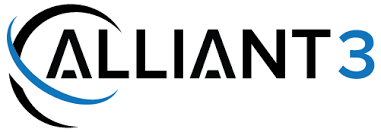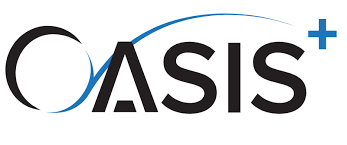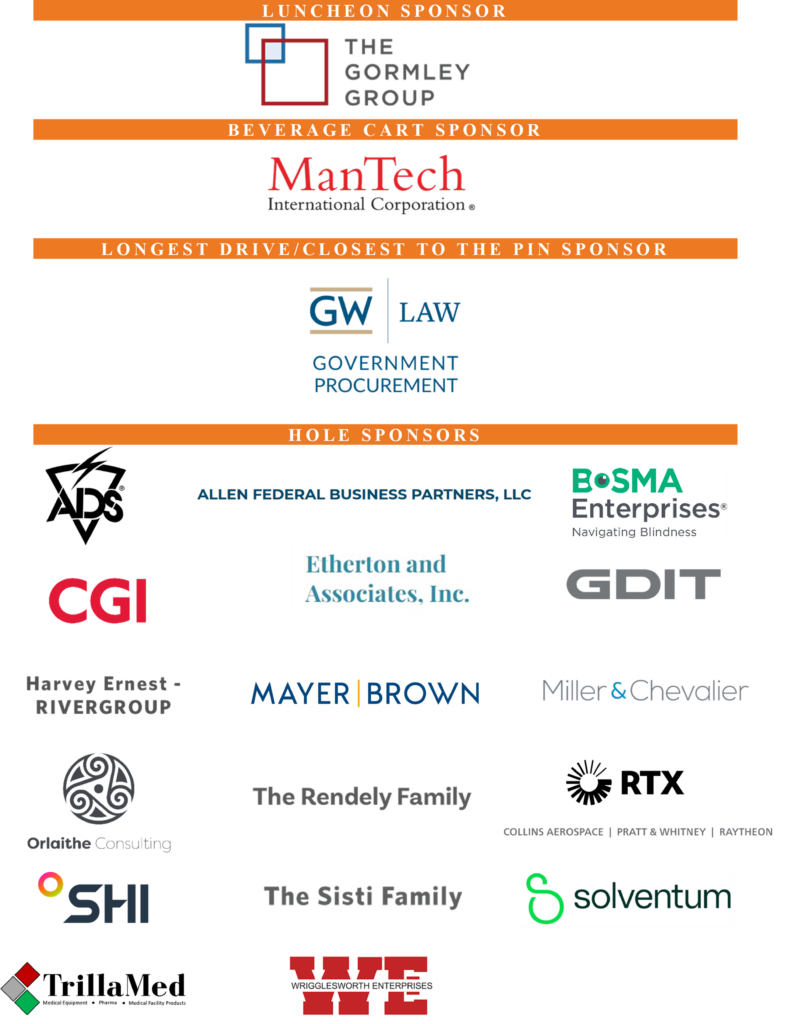Competing Global Supply Chain Approaches
The pandemic and its aftermath created a greater awareness of the fragility of global supply chains, and the federal government’s over reliance on adversaries in the supply chain. As a result, there has been no shortage of procurement legislation and regulation prohibiting or curtailing the federal government’s purchase of Chinese products: Section 889 of the Fiscal Year (FY) 2019 National Defense Authorization Act (NDAA) (restrictions on the use of telecommunications equipment and services); Section 847 of the FY 2020 NDAA (mitigating risks related to foreign ownership, control, or influence of Department of Defense (DoD) contractors or subcontractors); Section 223 of the FY 2021 NDAA (disclosure of funding sources in applications for federal research and development awards); and Section 5949 of the FY 2023 NDAA (prohibition of certain semiconductor products and services). Even more legislation may be on the way, as we see provisions in the House version of the FY 2025 NDAA (see, e.g., Sections 173, 178, 242, 807, 1706, and 1722) and in the Senate version of the bill (see, e.g., Sections 885, 886, 887, 888, and 889).
Two different supply chain supply regimes essentially govern supply acquisition: The Buy American Act (BAA) and the Trade Agreements Act (TAA). Recently, there has been a renewed focus on the BAA, as the domestic component requirements have been increased. The BAA, however, is a price evaluation preference, which means if the price of a Chinese product is low enough, the federal government will buy that product. For large business offerors the price preference added to non-domestic offers is 20%, and for small business offerors it is 30%. Under DoD acquisitions, the preference is 50% for all domestic offerors, regardless of size.
Depending on the item and the value of the acquisition, the TAA and/or other specific free trade agreements might apply because the United States Trade Representative (USTR) has waived the BAA for many supply acquisitions above specific thresholds, ranging from 50k to 174k. If the TAA applies, offerors generally must supply products made domestically or made in allied countries. Most major acquisitions for commercial products, like the MAS program, are subject to the TAA.
Under the TAA, Chinese products are not eligible for purchase because China is not a signatory to the TAA. Although the BAA favors domestic production, it has the downside of allowing the acquisition of Chinese products in certain circumstances. The TAA provides a holistic approach to strengthening the supply chain, by taking advantage of the economic advantages and technical capabilities of our domestic sources and our allies, with the added benefit of providing domestic firms with the ability to participate in the procurements of allied countries. The differences between the BAA and TAA are important considerations as government and industry work together to address supply chain security and resiliency.
FedRAMP Posts New Framework Prioritizing Emerging Technology

On June 27, the Federal Risk and Authorization Management Program (FedRAMP) service released the Emerging Technology Prioritization Framework, a “new operating framework that prioritizes integrating emerging technologies into Federal agency operations.” The framework will provide guidance to the public and private sectors on “how FedRAMP will work to identify which emerging technologies to focus on implementing and how cloud service providers can request their emerging tech-powered products be prioritized.”
FedRAMP will first apply the new framework to AI products and technologies. The framework will start by prioritizing up to three cloud service offerings per capability to address the demand for automation in public sector operations. The new framework is part of GSA’s efforts to modernize the FedRAMP authorization process to “meet increasing demands for cloud services.”
GSA Releases Alliant 3 Final RFP and First Amendment

On June 28, the General Services Administration (GSA) released the final Alliant 3 Request for Proposal (RFP). The proposal submission due date is October 28, 2024, 4:00 PM (ET).
Offerors must submit all questions regarding the solicitation no later than July 26 at 4:00 PM (ET). The Government’s response to questions will be made available to all potential offerors via SAM.gov, with an estimated response date of August 23, 2024. A prerecorded preproposal conference will be issued after GSA receives the questions.
On July 10, GSA released Amendment 0001 to Alliant 3. According to GSA, the amendment corrects technical issues and updates attachments J.P-9, J.P-10, J.P-12, and J.P-13. The proposal due date has not been extended as a result of this amendment.
Last Chance to Submit Feedback on Semiconductor Prohibition ANPR
GSA recently extended the comment period for responding to the Prohibition on Certain Semiconductor Products and Services advanced notice of proposed rulemaking (ANPR) from July 2, 2024 to August 2, 2024. The Prohibition on Certain Semiconductor Product and Services ANPR proposes to prohibit executive agencies from procuring or obtaining certain products and services that include covered semiconductor products or services effective December 23, 2027. The proposed prohibition applies to semiconductors produced by certain manufacturers in China or in other covered nations like North Korea, Russia and Iran. The rule implements paragraphs (a), (b), and (h) in section 5949 of the James M. Inhofe National Defense Authorization Act for Fiscal Year 2023. The Coalition would like to thank members who have submitted feedback for our comments. See the draft comments here. If you would like to provide additional feedback for our comments, please email Greg Waldron at gwaldron@thecgp.org by July 12 at 5:00 PM (ET).
GSA Updates OASIS+ Timeline and Website

On July 1, GSA announced that it is finalizing proposal evaluations for the OASIS+ program and plans to announce contract awards in the coming weeks. Awards will be made from Q4 of FY24 into early Q1 FY25. The program will make awards to 100% Total Small Business contracts first, followed by “the OASIS+ socioeconomic contract families (i.e., HUBZone, SDVOSB, and WOSB),” and then the unrestricted contract.
Additionally, GSA announced several updates to the new OASIS+ website including;
- A downloadable OASIS+ Fact Sheet on the Buyers section of the ‘Resources’ page;
- New content pages added to Buyers’ Guide and Sellers’ Guide;
- Language update to Task Order Level Protests (Section 3.6.3) of the OASIS+ Ordering Guide; and
- Additional dates for Delegation of Procurement Authority (DPA) and OASIS+ Overview training in July and August on the ‘Events and Training’ page.
Coalition Extends Deadline for Feedback on AI RFI
The Coalition is seeking feedback on a Request for Information (RFI) from the Department of Defense (DoD) on how to adopt AI for defense applications. The purpose of DoD’s RFI is to gather information that will “support their efforts in developing policies, initiatives, and resource distribution to ensure support for the defense industrial base (DIB) in integrating AI into defense systems.”
The RFI has 13 questions pertaining to infrastructure/supply chain resilience, workforce, innovation, acquisition, policy, and regulatory environment.
To see the full list of questions, click here.
The Coalition has extended their deadline for feedback to today, Friday, July 12 COB.
Please send any feedback on the RFI to Joseph Snyderwine at jsnyderwine@thecgp.org.
The deadline to submit comments to DoD is July 22, 2024.
AI Third-Party Verification Bill to be Introduced in Senate
According to Nextgov, Senator John Hickenlooper (D-CO) is expected to introduce legislation that tasks the National Institute of Standards and Technology (NIST) with drafting new guidance for artificial intelligence (AI) evaluations. The guidance would ensure that “automated systems are being tested accurately and deployed safely.” The legislation, named “The Validation and Evaluation for Trustworthy Artificial Intelligence Act (VET AI Act),” will help see that AI systems are effective and trustworthy in the rapidly growing industry through third-party certification.
Key provisions that are expected to be in the VET AI Act include:
- NIST to create consolidated approaches to monitor risk levels during the development and deployment of AI systems;
- Department of Commerce to create an “Artificial Intelligence Assurance Qualifications Advisory Committee” to help enforce guidance; and
- Department of Commerce and NIST to conduct a study to evaluate the current market landscape and successful methods employed by AI system evaluators.
GSA Raises Ceiling for VETS 2 GWAC

GSA recently announced that it has increased the ceiling for its widely popular VETS 2 Governmentwide Acquisition Contract (GWAC) to $6.1 billion. VETS 2 is a Best-in-Class GWAC that is set aside exclusively for Service-Disabled, Veteran-Owned Small Businesses (SDVOSB). VETS 2, which launched in 2018, is designed to meet a diverse range of IT services requirements.
GSA’s announcement notes that VETS 2 has seen rapid growth, with current obligations around $3.6 billion. The latest projections further suggest VETS 2 will reach 80 percent of its original $5 billion ceiling by the end of the fiscal year, leading GSA to raise the ceiling to avoid disruptions. The announcement also highlights how the increased ceiling will help the government meet its SDVOSB participation goal, recently raised from three to five percent.
The ordering period for VETS 2 ends in February 2028. GSA is already “preparing for the next generation SDVOSB GWAC.” The announcement further highlights that GSA is evaluating offers under the SDVOSB Pool of the new Polaris GWAC program, which will not have a ceiling.
Protests Resolved for DHS PACTS III
Washington Technology reports that the Government Accountability Office (GAO) has now resolved all protests regarding the Department of Homeland Security’s PACTS III solicitation, allowing the department to move forward with making awards. GAO ruled that the various protests did not provide enough information to show that DHS violated procurement rules. The protests focused on evaluation methodology for small business set-asides and joint ventures and preferences for certain socio-economic conditions. DHS has now “issued separate solicitations for each functional area of PACTS III, a potential $8.4 billion professional services vehicle that is set aside for small businesses.”
The three functional areas of the PACTS III include:
- Management consulting
- Office administration
- Engineering services
GSA Requests Funds to Consolidate Office Space
GSA is requesting that Congress provide $425 million for an “optimization fund” to improve building utilization rates and consolidate office space, reports Federal News Network. Agency office space consolidation would enable GSA to then sell or dispose of underutilized Federal buildings. According to comments last November from the GSA Administrator, the agency is looking to cut Federal space up to 30 percent over the coming years. This goal comes as approximately half of all GSA leases will expire over the next five years.
Over the past eight years, GSA has overseen 89 projects to consolidate office space. However, during that time period, agencies missed about 120 consolidation opportunities due to a lack of funding. Currently, agencies use their own budgets for furniture, fixture, equipment, and moving costs. The $425 million that GSA is requesting would assist agencies who are unable to afford these costs. Additionally, GSA requests that Congress grant the agency full access to the Federal Buildings Fund. GSA noted that since 2011, Congress has taken $10 billion from the Federal Buildings Fund, which has led to delays to necessary repairs and an increase in the total cost of projects by $300 million.
U.S. Intelligence Community Use of Generative AI
The U.S. intelligence community is seeking to leverage generative AI, reports GovExec. Lakshmi Raman, the Central Intelligence Agency’s Director of Artificial Intelligence Innovation, mentioned multiple ways that U.S. intelligence analysts are utilizing generative AI. These uses include “search and discovery assistance, writing assistance, ideation, brainstorming, generating counter arguments, and sifting through data to gather important insights.” Raman emphasized AI’s ability to help analysts scan through vast amounts of data to gain valuable insights.
However, according to experts, generative AI still requires a “thoughtful approach” despite its potential benefits to national security. “Hallucinations,” meaning incorrect answers created by generative AI, could have catastrophic effects in national security settings. In addition, the rigorous security requirements enforced by the intelligence community make it difficult for manufacturers to transition their AI offerings over from the commercial sector. Those tools that have met the standards, however, have already shown to be beneficial for intelligence missions.
Legal Corner: Data, Deals, and Diplomacy: How the Bulk Data Executive Order Will Shape Future Contracts and Security Practices
Authored by Townsend Bourne and Jordan Mallory; Sheppard Mullin
The Legal Corner provides the procurement community with an opportunity to share insights and comments on relevant legal issues of the day. The comments herein do not necessarily reflect the views of The Coalition for Government Procurement.
For companies in the U.S. that hold certain personal data and U.S. Government-related data, rules stemming from recent Executive Order (“EO”) 14117 on “Preventing Access to Americans’ Bulk Sensitive Personal Data and United States Government-Related Data by Countries of Concern” may create obstacles and new compliance obligations. Under this EO, the Attorney General is charged with issuing regulations to either outright prohibit or impose restrictions on transactions involving bulk sensitive personal data or U.S. Government-related data when such transactions involve a “country of concern.”
A Department of Justice (“DOJ”) Advanced Notice of Proposed Rulemaking (“ANPRM”) forecasts what some of the contours of the eventual regulations could look like, as discussed below.
Types of Data Covered
The EO identifies two classes of data that will be covered by the regulation: bulk sensitive personal data and U.S. Government-related data.
The ANPRM outlines six categories of data to be considered bulk U.S. sensitive personal data: (1) covered personal identifiers; (2) geolocation and related sensor data; (3) biometric identifiers; (4) human genomic data; (5) personal health data; (6) personal financial data.
For bulk sensitive personal data, there is a yet-to-be-determined volume threshold that must be involved in the transaction for it to be covered. Each data category will have a different volume threshold depending on its sensitivity, and combined data categories are covered if the volume surpasses the lowest of the thresholds in those data categories. Suggested thresholds in the ANPRM range from data sets on 100 U.S. persons for highly sensitive data to more than 1,000,000 U.S. persons for less sensitive data categories.
The ANPRM considers two categories under U.S. Government-related data:
- Precise geolocation data for government related locations, which refers to location data within a yet-to-be-determined level of accuracy within a yet-to-be-enumerated list of geofenced areas associated with military, government, and other sensitive facilities (there will be a “Government-Related Location Data List”).
- Sensitive personal data that a party markets as linked or linkable to current or recent former employees or contractors, or former senior officials, of the U.S. Government (e.g., company advertises the sale of personal data of active duty personnel or data set on members of a specific organization limited to military members and their families, such as USAA).
For U.S. Government-related data, there is no threshold requirement and the data categories will be covered regardless of volume.
Prohibitions and Restrictions
The ANPRM identifies certain classes of transactions that will be prohibited and those that will be restricted. Prohibited transactions include selling or licensing access to covered data – “Data Brokerage Transactions” – and transactions for bulk genomic data and human biospecimens from which genomic data can be derived. To be prohibited, the transaction must involve a country of concern. The ANPRM is considering identifying the following countries as countries of concern: China (including Hong Kong and Macau), Russia, Iran, North Korea, Cuba, and Venezuela.[1]
Vendor agreements, employment agreements, and investment agreements involving potential access by a country of concern to covered data will be restricted, requiring compliance with specific security measures to be determined by the Cybersecurity and Infrastructure Security Agency (“CISA”). The ANPRM includes suggested frameworks for CISA to draw on for these measures, including the CISA Cybersecurity Performance Goals (“CPG”), the National Institute of Standards & Technology (“NIST”) Cybersecurity Framework (“CSF”), the NIST Privacy Framework (“PF”), and NIST SP 800–171 rev. 3, Protecting Controlled Unclassified Information in Nonfederal Systems and Organizations.
Impact of the New Regulations
The new regulations will impact businesses with operations in or transactions involving countries of concern and covered persons related to those countries. This includes vendor agreements, employment agreements, and investment agreements that may enable access to covered data by countries of concern and covered persons if certain security measures are not in place. Companies should be cognizant of data hosting or cloud services in a country of concern, of employees that are citizens of and reside in a country of concern with access to covered data, and of foreign investment[2] from a county of concern.
Government contractors may benefit from an “Official business” exemption which would except otherwise covered transactions performed pursuant to a government contract or grant. Note this exemption is contemplated so that government agencies may craft their own contract and grant conditions to control risk of access to covered data.
The DOJ will issue a proposed rule (currently due at the end of August) based on feedback received on the ANPRM, followed by another comment period, and then a final rule. Because we currently are in the early stages of rulemaking, we expect there to be changes and (hopefully) more clarity by the time we arrive at a final rule. However, companies that hold sensitive information and have operations or vendors in identified countries of concern should stay up-to-date on developments in this space and take steps to prepare for the final rule by identifying potential transactions prohibited or restricted by the rule as well as implementing security measures that may mitigate identified risks.
FOOTNOTES
[1] This initial list is drawn from EO 13873, which identified these countries as “having engaged in a long-term pattern or serious instances of conduct significantly adverse to the national security of the United States or security and safety of the United States.”
[2] The ANPRM contemplates a coordination with the Committee on Foreign Investment in the United State (CFIUS), whereby the DOJ would regulate covered data transactions until CFIUS takes action related to the transaction.
Healthcare Spotlight – Now Available: The BIOSECURE Act’s Potential Impact on the Biotechnology Supply Chain

In case you missed it, a recording is now available of the Coalition’s webinar on the BIOSECURE Act. During the webinar, Hogan Lovells attorneys Joy Sturm, Mike Druckman, Ajay Kuntamukkala, and Tim Bergreen outlined what contractors need to know about the Act, including the key terminology, scope, and applicability, and will speak to its implications within the biotechnology sector. They also discussed potential U.S. trade sanctions that could be applied to restrict business with companies of concern and others considered to pose a national security threat. Finally, they addressed key compliance practices and steps companies can take to keep up with the evolving landscape impacting the biotechnology supply chain.
To access a recording of the webinar, click here.
View from Main Street: Schedule Recertification
Updates on Timely Topics Impacting the Government Contracting Industry from the Coalition’s Vice President of Acquisition Policy, Ken Dodds
In a recent size appeal decision, the Small Business Administration’s (SBA) Office of Hearings and Appeals (OHA) decided that a firm that had recertified as other than small, as a result of an acquisition, was eligible for an order set aside for small business on the General Services Administration’s (GSA) Multiple Award Schedule (MAS).[1] By way of background, the firm was small when it received the MAS contract and small when it competed for and was awarded a multiple award blanket purchase agreement (BPA) under the MAS. Subsequently, the firm was acquired and recertified as other than small for the underlying MAS contract and the BPA, as required by SBA’s regulations and the Federal Acquisition Regulation (FAR). The firm then competed for an order that was set aside for small business under the BPA.
OHA noted that SBA’s rules and the FAR provide that the dollars awarded after recertification cannot be counted towards the ordering agency’s small business goals. Although there is a process whereby a contracting officer can change a contractor’s size status as a result of a size recertification in the Federal Procurement Data System (FPDS) so that the dollars are correctly counted,[2] that change does not appear to have happened, as this firm currently is listed as small for its MAS contract on GSA’s eLibrary[3] and in FPDS (47QTCA21D0029),[4] as well as the BPA (68HERD22A0003) and orders under it.[5]
SBA’s size recertification rules are well intentioned. After extensive deliberation, SBA, in consultation with the Office of Federal Procurement Policy and other federal agencies, determined that firms would have to recertify their size if they became large as a result of an acquisition or merger. They also would be required to recertify size prior to the sixth year of a long-term contract. In addition, there are different policy considerations depending on whether the underlying contract was set-aside or full and open, and whether the change in size is due to organic growth or merger or acquisition.
If an agency commits to small business and sets aside a multiple award contract, SBA’s rules should not deprive the procuring agency of acquiring needed goods and services, if, for example, the size status of all of its contractors changed to other than small based on organic growth or acquisition or merger. On a set-aside, there is not a requirement to recertify size status on an order-by-order basis, and SBA’s rules do not render a firm ineligible to compete for, or perform, orders even if the firm recertifies as other than small as a result of organic growth or acquisition or merger.
For full and open contracts, SBA changed the rules to address eligibility for award and require size recertification in connection with set-aside orders. It did exempt the MAS from this order-by-order size recertification requirement, due to the success of small business under the MAS. This MAS exception was intended to provide firms with up to five years of small business status, even where they outgrow that size status during that five-year period. It also provides ordering agencies with the ability to count those dollars toward their small business goals, even if the firm has outgrown the size standard. The requirements to recertify based on acquisition and merger, however, apply to the MAS. Similarly, the requirement to recertify prior to an option period applies to the MAS. Thus, if a firm recertifies as other than small for the MAS, they should be listed as other than small for the MAS, and agencies should not get small business credit for dollars subsequently awarded to the firm after the firm recertifies as other than small.
Common sense would dictate that firms that have recertified as other than small and that are listed as other than small on the MAS should not be eligible for orders set aside for small business under the MAS. This point is critical because the small business rule of two is not mandatory with respect to the MAS.[6] If ordering agencies are not going to receive small business credit on the MAS when they conduct a set-aside, they will adjust. Agencies could start requiring recertification in connection with orders on the MAS, which would open the door to potential delays related to size protests and will disadvantage firms that may have outgrown their size status prior to having to recertify for the option period. Or agencies may decide to forgo setting aside orders under the MAS altogether. Such an interpretation is not a recertification requirement in connection with an order under the MAS. It simply recognizes that eligibility for a set-aside order under the MAS is based on the size status for the MAS, and if that status has changed, the firm is no longer eligible for set-aside orders.
[1] Size Appeal of LinTech Global, Inc., SBA No. SIZ-6287 (2024).
[2] FPDS_DataDictionary_V1.5.pdf, pp. 141-142.
[3]https://gsaelibrary.gsa.gov/ElibMain/contractorInfo.do?contractNumber=47QTCA21D0029&contractorName=LINTECH+GLOBAL+INC&executeQuery=YES
[4]https://www.fpds.gov/ezsearch/search.do?indexName=awardfull&templateName=1.5.3&s=FPDS.GOV&q=47QTCA21D0029
[5]https://www.fpds.gov/ezsearch/search.do?indexName=awardfull&templateName=1.5.3&s=FPDS.GOV&q=+68HERD22A0003
[6] FAR 8.405-5(a).
Calling All Golfers! Register for the Joseph P. Caggiano Memorial Golf Tournament
The Coalition for Government Procurement invites you to join us at the 11th Annual Joseph P. Caggiano Memorial Golf Tournament on August 21 to enjoy a day on the golf course while supporting some wonderful causes for our veterans! Whether you’re a seasoned golfer or a beginner, the Joseph P. Caggiano Memorial Tournament promises to be a wonderful time for all in attendance.
The tournament features a scramble format with teams of four golfers. In addition, this year’s event includes a Longest Drive/Closest to the Pin contest. You can register a foursome, as an individual golfer, or to enjoy the scenic views from the veranda club here.
Support for Our Nation’s Veterans
Proceeds from this year’s tournament will support two charitable causes for veterans, including The Coalition for Government Procurement Endowed Scholarship Fund for a deserving veteran studying U.S. government procurement at The George Washington University Law School.
Proceeds from this year’s golf tournament will once again support Paws for Purple Hearts. Paws for Purple Hearts improves the lives of veterans and wounded service members facing mobility challenges and trauma-related conditions through assistance dogs and canine-assisted therapeutic programs.
Thank You to Our Tournament Sponsors

If your company is interested in supporting the tournament while also gaining exposure for your brand, there are many sponsorship opportunities available.
- Title Sponsorships – $6,000/each
- Reception Sponsorships – $4,000/each
- Lunch Sponsorships – $4,000/each
- All-Day Beverage Cart Sponsorships – $2,500/each
- Hole Sponsorships with 4 Players – $1,200/each
- Veranda Club Sponsorships – $150/each
- Hole Sponsorships (no players) – $500/each
- Golf Foursomes – $800/each
- Single Golfer – $210/each
View the full list of sponsorship opportunities here. For more information, please contact Heather Tarpley at htarpley@thecgp.org.
Off the Shelf: Trends in GSA’s Multiple Award Schedule Program

The Gormley Group’s Sean Nulty, Managing Consultant and Director of DC Operations & Training, and Andrew Sisti, Principal Consultant and GSA Systems Subject Matter Expert, joined Off The Shelf to discuss current trends that are molding contract negotiations and administration under GSA’s Multiple Award Schedule (MAS) Program.
During the interview, Nulty and Sisti delve into GSA’s use of pricing data, namely the implications of Transactional Data Reporting (TDR). Additionally, they discuss negotiation trends for options, modifications, and new offers.
They also discuss GSA’s use of horizontal pricing and automatic pricing tools, such as the CALC Tool. In closing, they discuss the management of MAS contracts and how it is impacted by automated systems and data analytics.
Listen to the full podcast here.
EPA Briefs Members on the New FAR Part 23 on Sustainable Acquisition

On July 9, the Green Committee held a meeting on the new Federal Acquisition Register (FAR) Part 23 on Sustainable Acquisition with guest speakers from the Environmental Protection Agency (EPA) Environmentally Preferable Purchasing (EPP) Program, Johnathan Rifkin and Jenna Larkin. During the meeting, they discussed how recent changes to FAR Part 23 may shift contracting officers’ behaviors.
FAR Part 23 states that Federal purchasers “shall procure sustainable products and services to the maximum extent practicable.” This replaces the previous 95 percent target for sustainable purchasing. There is also a widened definition of “sustainable products” that includes EPA purchasing preference programs.
To view the slides from the presentation, please click here.
GWAC/MAC Committee Meeting: AAS Outlook and Realignment, July 16
On July 16 at 2:00 PM (ET), the GWAC/MAC Committee is hosting a members-only meeting with Casey Kelley, Client Executive, AAS Air Force/Navy/Space Force, GSA. During the meeting, he will brief attendees on the latest updates and initiatives from GSA’s Assisted Acquisition Services (AAS), including an AAS outlook and the status of its realignment efforts.
The meeting will take place at CGI Federal in Arlington, VA. Virtual attendance is also available.
To register, click here. For any assistance with registration, please contact Madyson Whiting at mwhiting@thecgp.org.
Please provide any questions for AAS in advance of the meeting to Michael Hanafin at mhanafin@thecgp.org by 10:00 AM (ET) today, Friday, July 12.
Webinar: Upcoming CMMC Cybersecurity Requirements for Healthcare Contractors, July 31
The following CMMC webinar is open to Coalition and AMSUS-SM members.

With the rise of DoD cyber enforcement and the near completion of the Cybersecurity Maturity Model Certification (CMMC) program, join Crowell & Moring government contracts attorneys Michael Gruden and Payal Nanavati specializing in cybersecurity and healthcare, respectively, for a webinar overview of CMMC requirements for companies working in the Healthcare sector and the unique requirements companies should be mindful of working in this space.
Key topics covered will include:
- Overview of CMMC Scoping, Documentation Requirements and Implementation Timeline;
- How to determine whether Protected Health Information (PHI) or Controlled Unclassified Information (CUI) is handled by your company;
- Understanding PHI and CUI handling requirements;
- Understanding Commercially Off the Shelf (COTS) determinations and related exemptions; and
- Healthcare & Cybersecurity Enforcement Risks.
To register, click here. For any assistance with registration, please contact Madyson Whiting at mwhiting@thecgp.org.
New Webinar: Supply Chain Risk Management (SCRM) Plans: From Government Requirement to Competitive Differentiator, August 14

In recent years, Federal contractors have been challenged to adapt their legal and compliance strategy to a growing regulatory focus on securing the Federal supply chain. In particular, technology bans and restrictions have been used to mitigate data security and surveillance concerns associated with foreign information and communications technology (ICT) – imposing significant new due diligence measures over extended third-party ecosystems. These kind of strict, targeted prohibitions are expected to play a role in how the Federal Government manages supply chain risk moving forward.
Furthermore, recent bellwether Federal procurements (GSA OASIS+, GSA Alliant 3, NASA SEWP VI, ASTRO, Polaris, 8(a) STARS III, and DISA DES, to name just a few) have required offerors to disclose measures taken to assess and limit supply chain risk as part of contract award – providing a glimpse into the importance of Supply Chain Risk Management (SCRM) as a contract award discriminator.
Federal agencies and the government contractors that serve them will increasingly be obligated to know exactly where products, components, software and services are being sourced, throughout all levels of an increasingly complex and global supply chain. Contractors can expect new standards and acquisition policies for SCRM programs in an effort to improve SCRM capabilities for the government and industry as a whole.
Please join the Coalition on August 14 from 12:00 – 1:00 PM (ET) for this timely presentation as we host Baker Tilly’s Leo Alvarez, Principal, and Molly Menoni, Senior Consultant. During the webinar, they will discuss:
- Regulatory activity related to supply chain risk;
- Recent supply chain-related security breaches;
- Biden’s cyber and supply chain Executive Order;
- Federal contract clause requirements related to supply chain oversight;
- The use of SCRM Plans in Key Federal Acquisitions;
- How an organization should evaluate its Supply Chain Risk Management (SCRM) practices;
- The use of all-source intelligence platforms (“Supply Chain Illumination”); and
- Practical guidance on SCRM Plan preparation and structure.
To register, click here. For any assistance with registration, please contact Madyson Whiting at mwhiting@thecgp.org.
Pharmaceutical Pricing Summer Webinar Series

Welcome to the “Pharmaceutical Pricing Fun in the Sun Summer Webinar Series”! Join us for five weeks in July and August as we dive into the intricate and dynamic world of pharmaceutical contracts and pricing. This five-part series is designed to enlighten and engage professionals across the industry, offering invaluable insights into pricing strategies, regulations, market trends, and much more.
Speakers:
- Stephen Ruscus, Partner at BakerHostetler
- Greg Madden, Managing Member at Orlaithe Consulting
To register for the webinar series, click here. For any assistance with registration, please contact Madyson Whiting at mwhiting@thecgp.org.
July 18: The FSS Contract – 5 Key Legal, Pricing, Compliance, Finance and Contracts Issues
July 18, for an in-depth webinar focused on the Department of Veterans Affairs’ Federal Supply Schedule (FSS) Program. This session will explore five key aspects of an FSS contract that are recognized as essential by legal, pricing, compliance, finance, and contracts professionals. Stephen and Greg will provide valuable insights into the intricacies of negotiating and managing FSS contracts for brand drugs, generic drugs, and medical devices. Attendees will gain a comprehensive understanding of the strategic considerations, regulatory requirements, pricing strategies, and compliance issues critical to maintaining successful FSS agreements. Don’t miss this opportunity to enhance your knowledge and ensure your organization’s adherence to best practices in FSS contracting.
July 25: Public Law Season Is Fast Approaching – What Do I Do?
As public law season rapidly approaches, it is crucial to stay informed and prepared, especially for drugs marketed under New Drug Applications (NDAs) and Biologics License Applications (BLAs). Join us on July 25 for a timely and informative webinar as Stephen and Greg will guide you through the essential steps to navigate public law season.
During the webinar, Stephen and Greg will cover the latest compliance requirements and strategic considerations that impact pricing, including:
- Why and how are my prices capped?
- What is the calculation?
- What are 5 key considerations for my organization in reporting pricing?
- What are the relevant processes and timetables?
- How does the statutory calculation affect my contracts?
Don’t miss this opportunity to equip yourself with the knowledge and tools needed to successfully navigate the upcoming public law season.
August 1: Domestic Sourcing Requirements – The Old and the New
we are pleased to have Stephen and Greg present an insightful webinar dedicated to understanding the evolving landscape of domestic sourcing requirements for brand drugs, generic drugs, and medical devices. This session will delve into both the established regulations and the latest updates affecting sourcing practices, including:
- The Buy American Act;
- Critical Component and Critical Item Heightened Requirements
- Increasing Component Cost Requirements
- The Trade Agreements Act; and
- Political Developments Focusing Domestic Sourcing Requirements on China and National Security.
During the webinar, Stephen and Greg will discuss the implications of these requirements on supply chains, compliance strategies, and overall business operations. Attendees will gain a comprehensive overview of these requirements and learn how to navigate the complexities of domestic sourcing in today’s market.
August 15: The FSS Contract Revisited – Handling 5 Other Key Issues
On August 15, we will wrap up the summer webinar series with Part 2 of our deep dive into the Federal Supply Schedule (FSS) Program. Building on the foundational knowledge shared in our previous session, “The FSS Contract – 5 Key Things Legal, Pricing, Compliance, Finance, and Contracts All Agree Are Important,” this webinar will address five additional critical and emerging aspects of FSS contract compliance that are not price related.
During this webinar, Stephen and Greg will provide advanced insights and address additional complex issues related to negotiating, managing, and maintaining FSS contracts for brand drugs, generic drugs, and medical devices. Whether you attended the first webinar or are new to the topic, this session will enhance your understanding and help ensure your organization’s success in the FSS contracting landscape. Don’t miss this opportunity to deepen your expertise and stay current with best practices in FSS contracting.